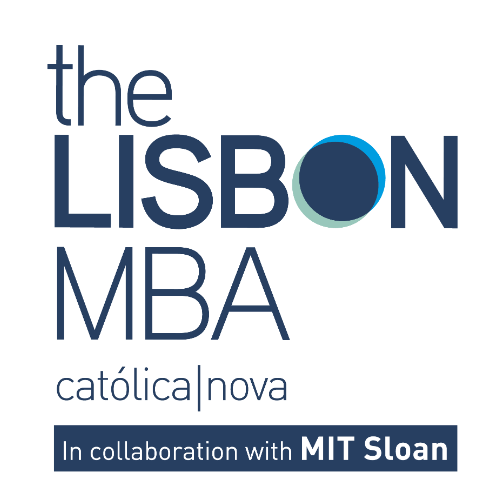With so many programs and similar curriculums out there, how can business schools give their students an edge in the ‘real’ world?
A recent study by the Financial Times has found that employers are increasingly looking for students with adaptable ‘soft’ skills such as the ability to work in a team or the ability to solve complex problems, and placing less importance on ‘hard skills’ such as technical knowledge in accounting or marketing.
The Lisbon MBA—a joint effort between Católica-Lisbon, Nova SBE, and MIT Sloan—places soft skills at the forefront of its curriculum.
Its Friday Forum Series—a set of workshops held yearly that focus on leadership—aims to develop MBA students’ adaptable soft skills through various teaching methods designed to prepare students for the future of work.
Coordinator of the Friday Forum Series, Teresa Oliveira (pictured), says the program is unique in that it encourages creative methods of learning, as well as adapting to the students’ own needs.
“In the program, we blend several learning methods: workshops with very different contents and methodologies, individual and group coaching sessions, and on-going peer feedback,” Teresa explains.
“Some workshops are mandatory while others are optional, according to each students’ development goals. We expect our students to be the main actors of their development.”
The workshops aim to transform MBA students into leaders of the future and consequently focuses on specific skills including building trust, creativity, and being prepared for uncertainty.
Teresa says that these skills are crucial for starting a career in today’s business environment.
“The world of work is becoming more and more thought-provoking, and although technical and management skills will still be important to support future success, markets have to deal with new complex competitive factors,” she adds.
“Personal and interpersonal skills can equip us with mindsets that anticipate the impacts of frequent and unpredicted changes and integrate strategies to handle these novel contexts.”
Sangeet Chowfla, chief executive of the Graduate Management Admission Council (GMAC), has previously said that, to encourage soft skills, business schools should be focusing on bringing diverse student cohorts together to tackle unfamiliar challenges.
50% of students on The Lisbon MBA are from outside Portugal; students in the 2018 cohort are from industries ranging from media and real estate to healthcare and finance; and, with the Friday Forum Series, The Lisbon MBA is doing just this.
“The Friday Forum Series aims to foster in our students the development of a ‘new’ mindset regarding what is leadership,” Teresa continues. “A good leader is no longer the ‘heroic’ person that influences or mobilizes the followers, but a facilitator that unleashes real collaboration in complex, ambiguous and fast-changing contexts.”
The Lisbon MBA allows students to put their newly-acquired leadership skills into practice during the program. Students have the opportunity to participate in a one-month immersion experience at MIT in the US, where they meet with companies in Boston and attend classes at Sloan School of Management.
“In sum, we provide a program on The Lisbon MBA where students are invited to know and question themselves, their habits, and beliefs,” Teresa concludes. “We offer opportunities to practice key leadership principles and tools, which can be applied both during and after the program.”









